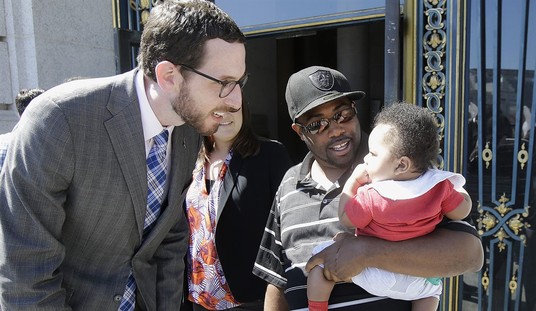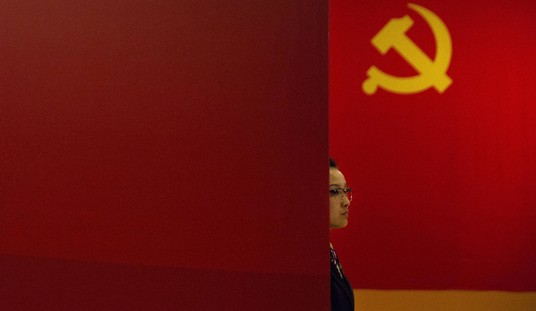While Facebook remains under fire in the US for its role in amplifying “fake news,” critics across the sea allege that the social-media platform has joined forces with Google to shut down news in Ireland. Both platforms have refused to accept any advertising related to the May 25th referendum to repeal the country’s Eighth Amendment, which would legalize abortion in Ireland. The move has some wondering whether this reveals a threat to free speech and public debate. “Is Ireland being used to make a point?” asked Colum Kenny in the Irish Times, who also questions the timing:
This in turn raises the separate questions as to why should powerful multinationals have the power to muzzle speech, to decide what is fair or unfair during particular campaigns?
The ban may be well-intended, but you do not have to be a “vote no” campaigner to be concerned. No State body such as the Broadcasting Authority of Ireland had input into or oversight of this decision. What if Google and Facebook got it wrong? …
Google’s and Facebook’s decisions to ban online ads relating to the Eighth Amendment came this week as it was claimed that the No side had been funded from abroad to outgun the Yes side online. Suddenly, claims that the Yes side had an unfair advantage due to financial support from abroad by George Soros and others were being stood on their head.
Were the online companies influenced by a liberal ideology? Would they have made the same decision if a surge in advertising had come from the Yes side? A notable feature of the celebratory parade in Dublin after the same-sex marriage referendum was the presence of vehicles bearing the brand of multinationals in Ireland. It is precisely because such questions arise that democracies need a way to ensure that fairness prevails on the internet as well as on the airwaves and in print.
Yesterday, a member of the Dáil (the Irish parliament) accused the Taoiseach (prime minister) of lobbying Facebook and Google to shut down the debate, as did pro-life groups in Ireland:
Taoiseach accused of lobbying for ban on ads ahead of #8thRef #twip pic.twitter.com/KKVi3uWgZ0
— The Week in Politics (@rtetwip) May 13, 2018
INDEPENDENT TD MATTIE McGrath has accused Taoiseach Leo Varadkar of lobbying tech giants Google and Facebook to ban advertising relating to the upcoming Eighth Amendment referendum.
Earlier this week, Facebook announced that it was banning adverts on the upcoming vote that originate outside of Ireland, while Google announced a blanket ban on any Eighth-related advertising.
At a press conference of a group of No campaigners on Wednesday, pro-life spokespeople accused the government, the media and the Yes side of orchestrating the Google ban to try to rig the referendum in favour of a Yes vote.
The No side said that it had planned significant advertising spend through Google and YouTube in the coming weeks and that the ban was “preventing campaigns that have done nothing illegal from campaigning in a perfectly legal matter”.
One online media outlet, FrontPage.org, accuses Facebook of going even further. They have had their previously approved content relating to the referendum pulled out of Facebook’s news feeds, even when that content was aggregated from Irish media sources:
Facebook rejected several articles from being distributed on their platform that had been aggregated by Frontpage.org and sourced from Irish media sources regarding the referendum. This happened after Facebook had originally approved the distribution of the article several days before. …
Facebook has also been blocking original opinion pieces from reputed Irish journalists regarding their own personal views on the referendum. This includes, for instance, two articles by Mr. Bruce Arnold , (here also), currently with the Independent.ie. The initial promotion of these opinion pieces written for Frontpage.org was approved by Facebook, but as of May 8th the promotions were disapproved by the Facebook Ads Team. It seems to us clear that Facebook is censoring Irish journalists, and the free press from sharing their views with the public on its global platform.
It is particularly troubling that Facebook also suspended distribution of a letter signed by over 100 legal professionals regarding their position on the referendum. This was reported as news in several Irish papers, but the original letter had not been published in its totality before Frontpage.org decided to allow its readers to review the unedited thoughts of these professionals on a historic issue.
It is also our view that Facebook should not be in the business of banning Irish lawyers, Irish journalists and Irish news from being shared with its citizens on its platform. Frontpage.org would like an explanation for their actions.
FrontPage has screen caps that substantiate their claims about Facebook’s actions on their content. While their original position to ban advertising financed by sources outside of Ireland is defensible as a compliance measure with Irish campaign finance law, blocking opinion pieces and other reporting falls far outside of that issue. “Censoring” is perhaps too strong a word, as that term applies to governments, unless Varadkar did lobby Facebook and Google to act on his behalf as TD McGrath alleges. At the very least, it would appear that the intervention from both Facebook and Google is not viewpoint-neutral and is intended to produce a particular result in the referendum.
That does raise considerable concern over their use of economic power in the area of political speech and activism. It again reminds us that concentrated economic power eventually gets used as political power and that it can corrupt even those processes and policies intended as reforms, especially when combined as they appear to be in this case. These concerns go far beyond the divide over abortion in Ireland. We need a serious discussion about the application of anti-trust laws and collusion in marketplaces when supposedly competing platforms such as Google and Facebook appear to be acting in concert to stifle speech and debate.








Join the conversation as a VIP Member